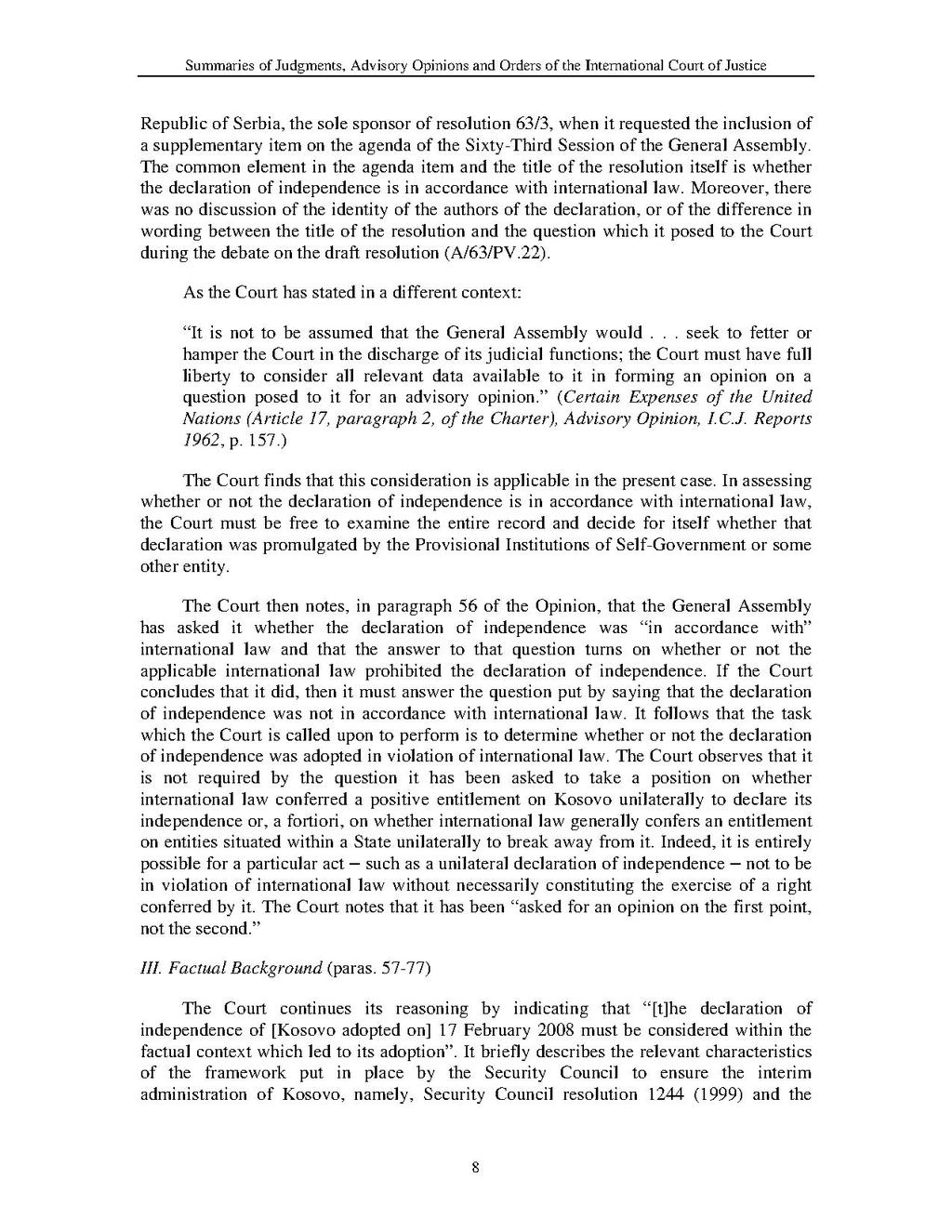Summaries of Judgments, Advisory Opinions and Orders of the International Court of Justice
Republic of Serbia, the sole sponsor of resolution 63/3, when it requested the inclusion of a supplementary item on the agenda of the Sixty-Third Session of the General Assembly. The common element in the agenda item and the title of the resolution itself is whether the declaration of independence is in accordance with international law. Moreover, there was no discussion of the identity of the authors of the declaration, or of the difference in wording between the title of the resolution and the question which it posed to the Court during the debate on the draft resolution (A/63/PV.22).
As the Court has stated in a different context:
"It is not to be assumed that the General Assembly would…seek to fetter or hamper the Court in the discharge of its judicial functions; the Court must have full liberty to consider all relevant data available to it in forming an opinion on a question posed to it for an advisory opinion." (Certain Expenses of the United Nations (Article 17, paragraph 2, of the Charter), Advisory Opinion, I.C.J. Reports 1962, p. 157.)
The Court finds that this consideration is applicable in the present case. In assessing whether or not the declaration of independence is in accordance with international law, the Court must be free to examine the entire record and decide for itself whether that declaration was promulgated by the Provisional Institutions of Self-Government or some other entity.
The Court then notes, in paragraph 56 of the Opinion, that the General Assembly has asked it whether the declaration of independence was "in accordance with" international law and that the answer to that question turns on whether or not the applicable international law prohibited the declaration of independence. If the Court concludes that it did, then it must answer the question put by saying that the declaration of independence was not in accordance with international law. It follows that the task which the Court is called upon to perform is to determine whether or not the declaration of independence was adopted in violation of international law. The Court observes that it is not required by the question it has been asked to take a position on whether international law conferred a positive entitlement on Kosovo unilaterally to declare its independence or, a fortiori, on whether international law generally confers an entitlement on entities situated within a State unilaterally to break away from it. Indeed, it is entirely possible for a particular act – such as a unilateral declaration of independence – not to be in violation of international law without necessarily constituting the exercise of a right conferred by it. The Court notes that it has been "asked for an opinion on the first point, not the second."
III. Factual Background (paras. 57-77)
The Court continues its reasoning by indicating that "[t]he declaration of independence of [Kosovo adopted on] 17 February 2008 must be considered within the factual context which led to its adoption". It briefly describes the relevant characteristics of the framework put in place by the Security Council to ensure the interim administration of Kosovo, namely, Security Council resolution 1244 (1999) and the
8
